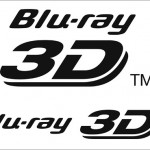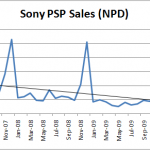What started as a way to avoid going through yet another week without doing any work, turned out to be a bit more work than I expected, but it was fun writing down all the things I’ve learned about 3D Blu-ray, and 3D in general, recently. Taking the form of an FAQ, my 3D Blu-ray – What’s it all about? blog posts looks at the basic principles behind 3D displays, and tries to clear up some common misconceptions behind the new technology (like whether you need HDMI 1.4 cables or not, if such a thing even exists). I’m sure I got some of it wrong, since there’s a lot of misinformation floating around. There’s also still quite a lot of stuff that I haven’t addressed, but I think I will save that for a full guide. Whether one should want 3D or not is a valid question, but I suspect with 3D technology relatively cheap to implement for TVs, there will come a time when 3D is a feature that comes with all the top-end TVs, whether you want it or not, and competition will ensure there isn’t a huge price premium to go along with it.

Let’s start with the new review, and starting as usual with copyright news. A reader of our newsletter kindly pointed out that I forgot to mention the demise of Newzbin, a Usenet indexer website that was accused of copyright infringement and subsequently shutdown.
The news did totally escape my attention for some reason, but there’s good news for fans of Newzbin, as it has been resurrected just this week. It was actually good timing on my part since when I first posted the story in the forum, the resurrection was just rumoured, but by the end of the week, it had become a reality. Apparently, the source code for the website was “leaked” a couple of weeks ago, and with the domain names transferred to a Seychelles based company, and semi-anonymous announcements of the resurrection by someone known only as Mr White, all the pieces were there for the resurrection. The new site, dubbed Newzbin 2, may even eventually feature more than just Usenet indexing, but extended to cover torrents as well. As for the legal questions surrounding the website, it will still exist, but it’s a question of whether the real owners can be found, or if the web host can be sufficiently threatened to pull the plug on the website.
Speaking of Usenet, it is a very frequently used place to download pirated content, despite all the media attention over BitTorrent. And this is one area that governments are a bit clueless about when it comes to copyright enforcement, with the agencies they’ve set up to monitor three strikes mostly ignoring this part of the online piracy trade. It just shows that whole anti-piracy crusade is nothing more than moral panic designed to make politicians feel like they’re doing something, even though they have no idea what exactly they’re doing, and give away our rights bit by bit to corporations. This trend started with the the US DMCA, and it’s been slowly exported to other countries around the world.
Canada is the latest country to adopt a US style DMCA, with the initial draft of the proposed changes finally released this week. But it’s not all bad news for consumers. The DRM provision that made the US DMCA so controversial is, unfortunately, still in. This means that if content has DRM, you can’t bypass the DRM to make backups (or to even use the damn thing). There are some exemptions, such as for research or parody, which provides at least some semblance of fair use. The changes proposed does finally give a clear legal position on the legality of time-shifting (recording TV shows for later viewing), format-shifting (ripping CDs to MP3s) and backups – all as long as you don’t break the DRM, of course. In other words, consumers have the right to do all the things they’ve been doing before, but if content owners start adding DRM to everything, then they can ensure these rights no longer exist and consumers have no say in the matter. What would have been better, and there is still time to make further changes, is to have an exemption for breaking DRM for the aforementioned fair use scenarios. DRM was always intended to stop piracy, it was and should never be used to prevent fair use, things like format shifting or time shifting. I mean, where is the danger in breaking DRM to make a backup, or to convert the DVD to DivX, as long as you only use the copy for personal use and don’t share the copy with anyone? There is no harm there, and nobody has ever been fined or gone to jail for this type of legal usage. If people want to share content illegally, then they are already breaking the law, and whether they broke DRM or not to do so is beside the point. So in Canada, there will be the situation where people can make unlimited copies of CDs or convert them to MP3 for personal use, yet if they do the same with DVDs, they’re breaking the law. The studios and music labels will point out that they’ve never gone after anyone for breaking DRM for personal use, but that’s also beside the point, since the law says it is illegal. Just because studios haven’t gone after someone for breaking DRM for personal use, doesn’t mean they will never, because if they do, they will win because of the DMCA.
The US Copyright Group, which sounds like an official organisation, but really is just a law firm that specialises in making money off anti-piracy activities, has been in the news a lot recently. Ars technica provided a rough breakdown of what the US Copyright Group could stand to make this year off these “pre-trial settlements”, and we’re talking about millions and millions of dollars here, so it is big business. While what they do isn’t illegal, there are ethical concerns, and groups like the EFF and ACLU are not happy with these types of actions, actions that others in the past have called “legal blackmail”. And it looks like the EFF and ACLU are stepping up their campaign to challenge this type of activity, and they may be preparing to reject one of these “pre-trial settlement” offers and take the thing to a full trial. This is the last thing groups like the US Copyright Group wants, because one, they could lose and that would set a bad precedent. And two, there’s not profit is a legal battle that could take months to resolve. But it looks like the EFF and ACLU want to prove a point in court, and this could be a very interesting trial indeed. Watch this space.
Somebody else wanting to have a fair trial is the 18-year old admin of a Danish BitTorrent tracker, whose home was searched in January this year, and now faces a legal claim of more than $260,000 by Danish anti-piracy agency, Antipiratgruppen. Antipiratgruppen’s opposition group, Piratgruppen, has promised to aid 18 year old Jonas Laeborg financially.
And the Ubisoft “always on” DRM continues to make headlines, this week after analyst Michael Pachter publicly came out to support the controversial DRM measure. Those that have read my NPD US games sales analysis blog series will know of Mr Pachter, and this predictions that, well, don’t always pan out. But it seems Pachter felt the need to comment on Ubisoft’s annoying DRM, even though from his statements, it appears he’s not aware of the finer differences between what Ubisoft has done, and what other companies like Steam are doing. I’ll let you read the news story in full from the link, since some of the stuff that’s said is just too ridiculous and embarrassing to repeat on these pages. If there can be such a thing as a war of analyst, then we have the exact opposite opinion from the founder of gamesbrief.com, Nicholas Lovell, who labels Ubisoft’s DRM as “draconian”. He goes to question whether pirates are now having a better gaming experience than legitimate customers, and even suggests the slightly controversial idea of giving games away for free and making money off downloadable content, and using piracy as a way to promote games. Free games would be nice, but I don’t think game publishers even need to go this far. Cheap games is all that’s needed to stop piracy dead in its tracks, to nurture a new generation of paying gamers (much like how iTunes has nurtured a generation of paying music lovers, or basically what Steam is already doing with games). Stop trying to come up with ways to punish pirates, which almost always fails and only ends up punishing paying customers, and instead, try and entice them to go legit. And as for piracy promoting games, I think this already happens to a degree, and many that pirate games do eventually pay for the game, or at least the sequel or something. Companies spend insane amounts of money trying to generate Internet hype, viral marketing and all that, but game companies are getting it for free through piracy. Of course, if the game itself isn’t good, then the news of that spreads quickly as well, and sometimes I think that’s what game companies are really concerned about, that people will find out how bad their product is all without enough people being sucked in to pay full price for it. I think maybe movie studios may feel the same about bad movies being leaked online and thus failing to trick people into paying. The companies that are confident of their products tend not to worry too much about piracy, since they know enough people will buy it anyway.

Let’s move onto HD news. I’ve already covered the 3D related HD stuff, so there’s nothing more to add on this front, other than to reiterate my opinion that people who haven’t seen 3D since the red/blue glasses days really should go and check out one of the 3D TV demos that are everywhere right now. It still may not be for you, but some I think will be surprised to find out just how impressive the whole thing is.
On the PC front, we have some interesting developments, and perhaps the emergence of a new form factor – the Blu-ray + SSD drive. Hitachi/LG is releasing a portable Blu-ray reader/DVD writer drive, that also contains a SSD drive. By combining two storage systems in one, it saves space inside today’s already cramped portable computing devices, and offers support for two of the latest storage techniques. The SSD drive can be used as a cache to speed up everyday operations, or use to store system files for almost instant system loading. I’m actually constantly surprised to see top of the range laptops and computer systems, the ones that cost $4000 or more, not including a Blu-ray drive at all. The premium for Blu-ray reader drives, or even writer drives, is so insignificant compared to say the cost of even high speed memory, that it’s just a mystery for me why Blu-ray drives aren’t standard already on *all* system, let alone the top-of-the-line gaming/multimedia systems. And even Sony has been guilty of this on their Vaio range, as I would have thought every Sony product would be including Blu-ray support by now.
![]()
And finally in gaming, the section I’ve been ignoring recently, there’s still not a lot of news. But E3 is just around the corner, and the flood of news will follow short after. For this week though, there is only the news that Japanese PS3 owners will get the 3D gaming patch in the next few days – whether PS3 owners in other countries will get it or not, I have no idead.
It’s good timing too, because some people already have their hands on 3D TVs, but without a lack of content, the PS3 3D games might just fill the void. And for those too cheap to pay for the games, there’s even a demo version of Motorstorm 2 that will have a 3D mode. However, there is still no firm date for 3D Blu-ray support, other than the now standard “before the end of the year” line from Sony.
As for E3, I guess I could still wait until next week to spill my thoughts on the whole Move/Natal thing, but I might just say it here. Microsoft is being very secretive regarding its Natal announcement, which makes me suspect that they’ve got something big lined up. With all due respect to Move, Sony has already said and demo’d quite a lot of the technology and games already, and with the “similarities” between it and the Wii, E3 probably won’t hold too many Move related surprises. But with Project Natal, we don’t know the pricing, or even the final product name, or any other games other than Ricochet, so there’s a lot of work Microsoft needs to do at E3. It could be make or break time for Project Natal, and I think Microsoft realises this, hence all the secrecy, as if they’re saving everything all at the same time for a truly “shock and awe” unveil. Cynics, and fanboys of the other platforms, will say that the secrecy is because Microsoft knows Project Natal is a big fail that won’t really work, and is more laggy than a thing that has a large amount of lag. But those that have had recent plays with the technology, with the updated Ricochet mainly, have only good things to say about it, and this suggest to me Microsoft is confident it will work, but it wants maximum impact at E3. The fact that MTV is going to air the E3 Project Natal launch event is further evidence of this strategy. And with the World Cup, maybe will there be some kind of football/soccer based game demonstration in there. The caveat here is that I’m often wrong about these things, so I could be wronger than a thing that is very wrong indeed.
I don’t think Move is a game changer for the gaming industry, or even for the PS3, but Project Natal has the potential. And for the same reason, it could also fail miserably and take the Xbox 360 with it, so the next few weeks will tell us a lot about the outcome of the current gen console war.
I think that’s all I have for this week. Have a good one.














